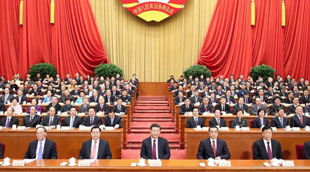
By Flavia Nassaka
Why the government prefers to pay them little
On May 21, 138 chairpersons of the Uganda National Teachers Union (UNATU) countrywide entered the offices of Prime Minister, RuhakanaRugunda in Kampala for a meeting.He had invited them to explain why, despite government’s commitment, it had failed to include a 10% raise on teachers’ salaries in the 2015/16 budget. The government was shaken because the teachers were on strike over the issue.
Although, UNATU had warned of impending industrial action, the government initially reacted coldly. When teachers failed to report for duty on May 18 when second term officially opened, Rugunda had ordered them to teach or risk punishment. The government also used its media outlets to claim the teachers were not heeding the strike call.
It was a classic case of combining pressure and misinformation and had worked in the past. This time it was failing. Even though the strike was not being observed in all government schools, it disrupted the opening of the term. By May 21, three days into the term, many schools around the country remained closed.

Although Rugunda had called the meeting, he was not in the meeting room; which the teachers say was odd. Even the Minister of Education, Jessica Alupo was absent. Instead, the teachers held a four-hour meeting with the Second Deputy Prime Minister, Henry Kajura, Information Minister Jim Muhwezi, Minister of State for Finance (Planning) David Bahati, and John Chrysostom Muyingo; the most junior minister for Primary Education. It was a fiasco. The teachers emerged disappointed. Their leader, UNATU National Chairperson Margret Rwakashaija, herded them to their UNATU headquarters in downtown Kampala where they issued a terse statement that their industrial action would continue.
Rwakashaija told The Independent that the meeting had been “a waste of time” and that they had been “fed with empty promises”. She said the ministers once again told them that government had no money to increase their salaries in the budget due to be read on June 11. Instead, it offered a sweetener. If they called off the strike, government promised, it would top up their 10% demand with another 2% to make it a 12% increment in financial year 2016/2017. The seething teachers spat out the government offer. On May 25, the government upped the offer to 15%. Still, the teachers treated it as a negotiating prank.
They were incensed that the same government claiming to have no money had just approved a 40% increase in salaries of legislators and other Parliamentary staff in financial year 2015/16. At the time of the government, teacher meetings, newspapers were running lists of salaries of workers in public offices leaked from a report to parliament by the Committee on Statutory Authorities and State Enterprises (COSASE). The teachers could see that some public officials were earning up to Shs50 million a month, minus allowances, and other perks. Since the least paid teachers earn Shs300, 000, the Shs50 million paid to one official could cover a 10% increase for 1,670 of them. The salaries of ten top officials could cover the 169,000 teachers who Rwakashaija heads in UNATU.
Rwakashaija says the teachers were also unhappy that the government was again attempting to breach an agreement made in 2011 between President Museveni and UNATU. Back then, the teachers who are among the lowest paid civil servants had gone on strike demanding a 100% increase in salaries. The President cajoled them back to work with a promise of a 50% increase in salaries to be disbursed over three financial years – 15% in 2012/2013, 20% in 2013/14, and 15 % in 2014/15. The government immediately reneged on the agreement, until the teachers resumed their strike in 2013. The government in financial year 2013/14 granted them a 25% increment. In the 2014/15 financial year, it gave them another 15%, bringing the total to 40%. The final 10% that was promised to be allocated in 2015/16 has become a sticking point.
For a primary school teacher who earns Shs 300,000, a 10% increment means a teacher will be earning an extra Shs30,000; about the price of 2kgs of beef. That sounds like a manageable figure. So why is the government not delivering on its promise?
Numbers to blame
Rwakashaija says in their meeting with the ministers, the teachers had proposed that at least a 5% increase be made. But, she said, the ministers rejected it and maintained that the government has no money.
The government reluctance could be due to the numbers game. If it gave a 10% raise, the government will have to part with Shs45 billion every year to cater for the 126,488 teachers in primary school only.
Dr. Ibrahim Kasirye, a senior researcher at the Economic Policy Research Center (EPRC), says the huge numbers is what makes it hard for the government to offer high salaries to teachers. He says it can have a huge impact on the total wage bill and any government would think critically about issues regarding salaries of people who account for more than half of all the country’s civil servants.
The primary school teachers alone account for more than half of the 275,149 civil servants registered at the Uganda Bureau of Statistics (UBOS).
Kasirye says apart from the inflationary pressures it can cause, the timing of the teachers’ demands was bad as it was made at the time when decisions regarding budget allocations have already been made. To him, what we see in parliament is just for the legislators to approve or disapprove but the biggest decisions have already been made.
“Giving teachers the 10% will mean this money has to be cut from somewhere else which government may not be ready to do now,” he says, ““It’s much safer for government to promise allocation in the next financial year.”
Prof. Edward Bbale, a professor of Economics at Makerere University seems to agree with Kasirye. He says despite teachers being among the lowest paid civil servants, their number is big. They cannot be compared, for example with MPs and parliamentary staff, who are in their hundreds and are an institution that is self-accounting.
Bbale says going into the election year, where lots of money is going into financing elections, it may not be easy for government to source for the money it has not planned for.
President Museveni in early 2013 appeared to feel the teachers’ pain. He even set up an Inter-ministerial Committee to find possible ways of cutting funding to some sectors in the budget to fund their pay rise. It failed. It is therefore unlikely that it can happen now.
Insensitive government?
But Rwakashaija says the government is simply insensitive to the teachers’ demands. She recalls how, in September 2013 when teachers went on strike at the beginning of third term, Education Minister Jessica Alupo threatened to punish teachers who had spent a week away from classrooms seeking their 20% pay raise.
Rwakashaija says a similar thing is happening as there has not been good flow of communication this time. She says some frustrated teachers are choosing to quit the profession altogether.
A report released by the United Nations Educational, Scientific and Cultural Organisation (UNESCO ) in December 2014 revealed that only 16% of primary teachers in government schools planned to remain in the profession in the next two years. Up to 47% said they were dissatisfied with the job because of poor pay.
The National Organisation of Trade Union (NOTU)’s Chairman General, Wilson Owere, says its time the government started offering teachers decent working and living conditions. He told The Independent that is the only way it can guarantee quality education. To him, the problem appears to be the generally persistent inequity in the salaries of government employees at same levels but in different institutions. Owere says the government must attach value to the country’s human resource because it’s an important aspect of development; just like infrastructure development that the government has resolved to focus on.
But not everyone is convinced. Worker’s MP Sam Lyomoki says “some teachers like many public servants have a wrong mindset”. He says it comes out of working in institutions where productivity is not emphasized. To him, this explains why teachers in private schools perform well even when they are paid little; unlike teachers in public schools.
“Teachers need to take their profession as a calling but operating in the country where workers have lost confidence in the functi
 The Independent Uganda: You get the Truth we Pay the Price
The Independent Uganda: You get the Truth we Pay the Price


